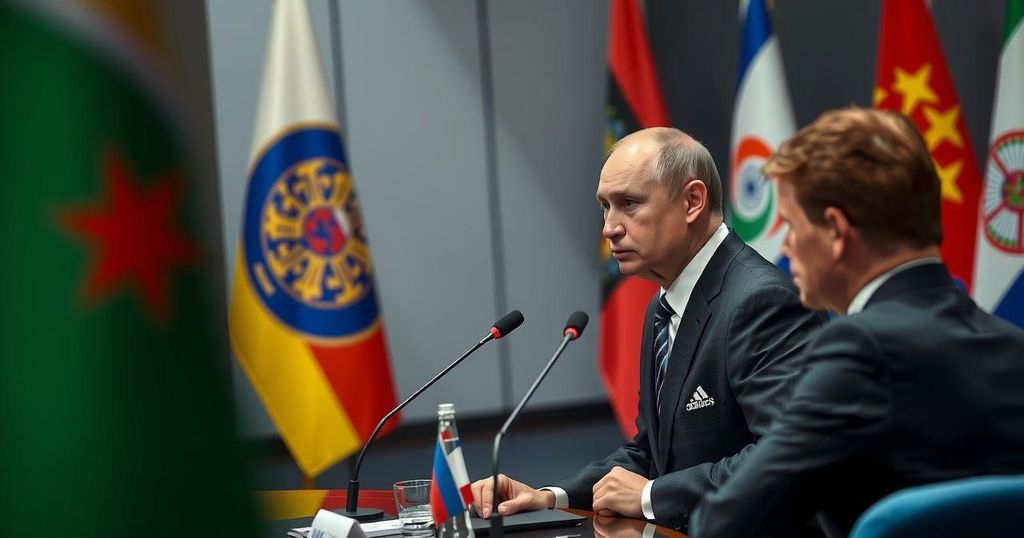Putin Leads BRICS Summit Aiming to Enhance Russia’s Global Influence
The BRICS summit in Kazan, presided over by President Putin, focused on strengthening financial cooperation and expanding the bloc’s influence amid rising tensions with Western nations. Leaders, including Xi Jinping and Narendra Modi, discussed alternative payment systems and conflict resolution, emphasizing the importance of unity against Western sanctions and political isolation. The summit concluded with a pledge for enhanced collaboration among BRICS countries, many of which collectively represent a significant global population.
During the BRICS summit held in Kazan, Russia, President Vladimir Putin presided over discussions among leaders from Brazil, Russia, India, China, South Africa, and several other nations, as efforts to bolster Russia’s influence were on the agenda. The summit addressed issues such as developing alternatives to Western payment systems, regional conflict resolution, and the potential expansion of the BRICS group, which now includes nations such as Iran, Egypt, and Ethiopia. Chinese President Xi Jinping advocated for de-escalation in the Ukraine conflict and encouraged a political resolution. Putin criticized Western sanctions and interventionist policies, attributing them to rising global tensions. He emphasized the necessity of creating a new payment system to circumvent the SWIFT network, aiming to promote stronger financial cooperation within BRICS. Putin and Xi also reaffirmed their partnership, previously declared as having no limits, and continued to solidify Russia’s ties with India. Prime Minister Narendra Modi maintained a neutral stance on the Ukraine conflict, prioritizing a peaceful resolution while avoiding condemnation of Russia. Moreover, United Nations Secretary-General Antonio Guterres attended the summit, calling for an end to violence in various global hotspots, underscoring the urgent need for peace in Ukraine. The Kremlin portrayed the summit as a significant diplomatic success, highlighting the collective strength of BRICS countries, which together represent a substantial portion of the world’s population and challenge Western dominance. Overall, the discussions at BRICS exemplified an effort to consolidate a bloc that seeks to play a decisive role in the evolving geopolitical landscape, resisting Western hegemony.
The BRICS (Brazil, Russia, India, China, and South Africa) bloc was established to provide a platform for cooperation among emerging economies that collectively represent significant portions of the world’s population and economic growth. The recent summit in Kazan was significant as it occurred against the backdrop of heightened geopolitical tensions, particularly regarding Russia’s ongoing conflict in Ukraine. The bloc has expanded in recent years, inviting more nations to join, reflecting its growing influence and ambition to challenge Western-dominated institutions and norms.
In conclusion, the BRICS summit in Kazan underscored the group’s aspiration to reinforce its global influence while presenting a united front against Western policies. The event highlighted the bloc’s commitment to expanding financial cooperation and addressing regional conflicts, demonstrating a proactive stance in reshaping international relations. The calls for de-escalation and the pursuit of alternative economic systems further reflect the strategic objectives of member states, particularly Russia and China, as they navigate the complex dynamics of contemporary global politics.
Original Source: apnews.com




Post Comment